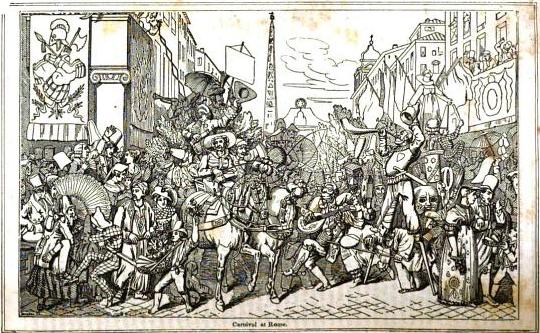★1945、2021、2050 | ★1945、2021、2050
| ★1945、2021、2050 | ★1945、2021、2050 |
- Introspection & Perspectives | - Introspezione & Prospettiva | - Introspection & Perspectives | - 反思 & 展望 |
Hugo Aujourd’hui | Hugo Oggi | Hugo Today | 今日雨果 |
V1.000.2021-08-10 | V1.000.2021-08-10 | V1.000.2021-08-10 | V1.000.2021-08-10 |
V1.056.2021-10-30


| ▲Ré: Professeur à Stanford a déchiffré ce secret économique | ▲Re: Professor in Stanford decrypted this economic secret | ▲回复: 斯坦福教授破解了这个经济秘密 |
| http://news.creaders.net/society/2019/06/22/2105332.html |
|
|
|
|
|
| Professeur à Stanford a dit: | Professor in Stanford said:
| 斯坦福教授说: |
| “C’est vraiment basé sur la nature humaine, donc à l'avenir, nous verrons certainement des explosions de consommation dans tous les domaines. Sans aucun doute, nous sommes profondément convaincus qu'il y aura de la place pour la croissance dans future économie axée sur la consommation. ” | “It is really based on human nature, so in the future, we will certainly see consumption-explosions in every fields. Without doubt, we are deeply convinced that there will be space for growth in future consumption-driven economy.” | “正基于人性不变,所以未来,我们一定还会看到各个领域出现消费爆品,对于未来消费拉动经济带来的增长空间,我们深信不疑。” |
|
|
|
HugoAujourd’hui a dit:
| Hugo Today said: | 今日雨果说: |
| Humanité = Sensibilité ∪ Rationalité | Humanity = Sensibility ∪ Rationality | 人性 = 感性 ∪ 理性 |
| ☞ 2050正在逼近 http://hugoaujourdhui.org/livre-blanc/science/Année%202050.html,la société de consommation doit être transformée en une société de “vivre une vie tempéré、heureuse” | ☞ 2050正在逼近 http://hugoaujourdhui.org/livre-blanc/science/Année%202050.html,the consumption society must be transformed to a society of “lives a life temperately、happily” |
☞ 2050正在逼近 http://hugoaujourdhui.org/livre-blanc/science/Année%202050.html,消费社会,得向“有节制地、幸福地生活”社会过渡。 |
Further more, there is an interesting note:
Published on Jul 12, 2010
Which version is better, Mengelberg or Stokowski?
Willem Mengelberg: March 28, 1871 - Utrecht, Holland - Died: March 21, 1951 - Chur, Switzerland
Willem Mengelberg made his debut as a pianist at a very young age and took over leadership of the Lucerne City Conservatory in 1891. Only four years later, in 1895, he was nominated musical director of the Concertgebouw Orchestra Amsterdam, and did not leave this post until 1945
Louis-Hector Berlioz, 1803-1869. Overture, ``The Roman Carnival'', Op. 9. Completed 1843, first performance February 3, 1844, in Paris. Scored for 2 flutes, 2 oboes, English horn, 2 clarinets, 4 bassoons, 4 horns, 2 trumpets, 2 cornets, 3 trombones, cymbals, 2 snare drums, triangle, tympani, and strings.
In 1830, after several years of trying, Hector Berlioz finally won the Prix de Rome, a prestigious competition that encouraged the development of music by supplying young composers with a stipend and the opportunity to study abroad (although it also quite consistently discouraged innovation due to the conservatism of its judges, who were often mediocre composers in their own right). As a condition of the prize, Berlioz was required to travel to Italy for a year. At first he resisted the trip, complaining of poor health, but eventually he relented and quickly learned to love the country and its people. This affection inspired a number of works, including the well-known Harold in Italy and, in 1838, the semi-serious opera Benvenuto Cellini.
As is all too often the case, the premiere of the opera was disastrous. The orchestra, despite having had nineteen rehearsals, could not master the difficulties of the new music, the conductor (one François-Antoine Habeneck) ignored Berlioz's instructions, and the singers detested their parts. After only three performances the tenor withdrew, prompting the management of the Paris Opera to cancel the remainder of the engagement.
Like any good father, Berlioz never abandoned his creation, and half a decade later he decided to recoup at least some of his losses by converting a bit of the music into a brief orchestral overture. He chose one theme from a love duet and a second from a lively carnival scene in the second act; it is from the latter that the overture received its name.
The combination is a pleasing one, and one surely would have thought that his arrangement was assured of success. But one more roadblock stood in his way: there was only one rehearsal prior to the first performance, and the wind players were called away to National Guard duties that morning. Undeterred, Berlioz assured them that they would survive the overture's difficulties: ``You are all excellent players. Watch my stick as often as you can, count your rests carefully, and everything will be all right.'' He was correct; according to Sir Charles Hallé's account, ``... his beat was so decisive, his indication of all nuances so clear and so unmistakable, that... no uninitiated person could guess at the absence of a rehearsal.
The final satisfaction for the oft-maligned composer came after the overture was repeated to satisfy the audience's demands. As he left the stage, Berlioz passed Habeneck, who had heard about the difficulties and had come in hopes of seeing a disaster. Referring to the carnival scene in the opera, which Habeneck had always taken too slowly, Berlioz commented simply, ``That's how it goes.'' There was no reply.
https://www.youtube.com/watch?v=eT2kLWRi3sc&feature=youtu.be








